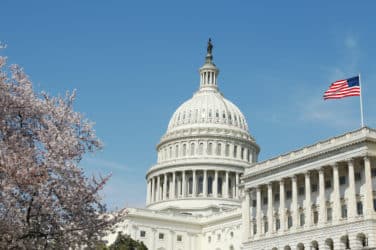Fran Reed is a regulatory strategist at FactSet.
What do you view as the most important lesson of 2016?
Cybersecurity issues moved beyond bank and credit-card theft and onto to the political stage with allegations of classified data and elections tampering/influencing. People may have previously assumed everything they do online is monitored and recorded, by US intelligence agencies and other domestic entities, but now foreign regimes appear to be just as involved as well.
Another lesson learned in 2016 is the proliferation of fake news, or the over-reliance on unverified news and misinformation. More than any time in history, 2016 was punctuated by the rise and widespread abuse of the internet as a delivery mechanism for false or misleading news stories, often promoting a particular ideology or agenda. With an information hungry populous often playing the part of unwitting transmission vector (via re-tweet), fake news items that spread can have real-world outcomes with sometimes deadly serious consequences. This is problematic not only for individuals or political movements, but potentially for markets as well.
What do you see as the next major watershed for the industry in 2017?
The concept of a “fiduciary” will become the new standard of excellence in the wealth management industry. Expect to see regulatory rollback of the specific US Department of Labor legislation, but with a permanence of the concept. Ironically, the public controversy around the DoL rule within our highly-charged political environment has elevated the concept of a fiduciary into the popular culture and vernacular of the conversation. The new Trump administration will most definitely look to delay, repeal and replace the DoL rule – as it represents egregious example federal government overreach into the pockets of the American public.

Fran Reed, FactSet
The industry response to the concept of what it means to be a fiduciary will become the financial industry’s counter-response to the trillion-dollar industry-wide migration into index-tracking mutual funds and exchange-traded funds – a tectonic shift away from active management to passive management that has been under way for years.
Ironically, many wealth management firms now see an opportunity of financial gain from the fiduciary standard. Fundamentally fee-based accounts can generate stable and attractive revenues as a percentage of annual assets under management – compared to less reliable revenues associated with commission-based accounts. Investment firms are seizing the opportunity to promote the fiduciary concept for attracting new customer assets with the tag-line “you deserve a fiduciary…”, thereby signifying a longer-term relationship of someone looking out for their best interests, rather than just selling investments.
What changes do you expect to see in regards to Dodd-Frank in 2017?
Dismantling Dodd-Frank will not happen. Trump will realize the large legal costs, long time frame and great effort are simply not worth it. Rather, picking and choosing his battles, then making a great “show” of his efforts will prove more valuable. However, stopping certain targeted reforms, like DOL Fiduciary rule will be “easy victories” for him – ones which he can boast about – especially within his first 100 days. He will realize that his administration and the markets will be better served by “simplify the regulatory system, not dismantling it.”
This year’s biggest surprises included the extraordinary industry discussion on what will happen to MiFID II enforcement in a post-Brexit UK. MiFID II is a huge regulation affecting many areas of finance across Europe, and access to a “single market” is one of its fundamental elements. If the UK does not comply with MiFID, it cannot be part of the market. Yet the thought behind Brexit is rejecting Luxembourg’s dictation of the rules.
Back in Europe, the Market Abuse Regulation took effect in July 2016 and snuck up on many. Everyone was so preoccupied and concerned with MiFID II, they all thought MAR would be small and simple. Yet when it actually went into effect, everyone suddenly realized how much they have to do to be compliant and went scrambling for solutions only to find out that there wasn’t really one on the market. Solvency II, which took effect January 2016, also gave companies lots of headaches throughout the year





